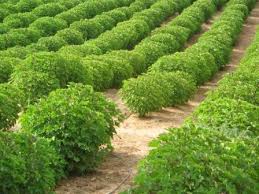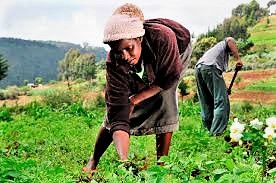[vc_row][vc_column][vc_column_text css=”.vc_custom_1551974118361{padding-bottom: 10px !important;}”] Africa’s need to focus on agriculture has never been more urgent then it is now. Agriculture will continue to be the most important sector of the African economy. Agriculture is an equal opportunity employer and partner of all industries, it is no doubt one of the most effective strategies for reducing poverty, and is a pre-requisite for nation building. GGDG has developed a social impact and economic agricultural development program which produces food, fuel, jobs and profits on an industrial scale, all while remaining eco-friendly.
Africa’s need to focus on agriculture has never been more urgent then it is now. Agriculture will continue to be the most important sector of the African economy. Agriculture is an equal opportunity employer and partner of all industries, it is no doubt one of the most effective strategies for reducing poverty, and is a pre-requisite for nation building. GGDG has developed a social impact and economic agricultural development program which produces food, fuel, jobs and profits on an industrial scale, all while remaining eco-friendly.
Global Green Bioenergy Limited is a social impact and economic development model that is designed with the small scale farmer in mind. GGBL establishes cooperatives of approximately 6,000 small farmers each contributing 2.5 ha. of land, for a total of 15,000 ha. (37,000 acres) for jatropha feedstock production in each state. With each farm employing just 8 to 10 people, up to 50,000 rural jobs are created in support of each project. The jobs start immediately upon execution of the Private Public Partnership between State Government, Local Farmers Cooperative, and Global Green Bioenergy Limited.
GGBL is on its way to achieving a minimum of 150,000 ha. (370,000 acres) of land for jatropha feedstock production under its control in Nigeria alone, and has plans to replicate its model throughout Africa. GGBL provides a guaranteed off-take agreement to each farmer in the cooperative for every jatropha seed that is harvested and delivered to its nearby biofuel refinery. The land will be intercropped with food crops where the local farmers will either sell in the local markets, or bring to our Agricultural Industrial Park for further processing for exports. This ensures the local farmers a guaranteed annual income and no crop waste. Such efforts will preserve the farmland for local farmers, alleviate poverty and help to prevent desertification in Sub-Saharan Africa.
[/vc_column_text][/vc_column][/vc_row]

 GGBL is on its way to achieving a minimum of 150,000 ha. (370,000 acres) of land for jatropha feedstock production under its control in Nigeria alone, and has plans to replicate its model throughout Africa. GGBL provides a guaranteed off-take agreement to each farmer in the cooperative for every jatropha seed that is harvested and delivered to its nearby biofuel refinery. The land will be intercropped with food crops where the local farmers will either sell in the local markets, or bring to our Agricultural Industrial Park for further processing for exports. This ensures the local farmers a guaranteed annual income and no crop waste. Such efforts will preserve the farmland for local farmers, alleviate poverty and help to prevent desertification in Sub-Saharan Africa.
GGBL is on its way to achieving a minimum of 150,000 ha. (370,000 acres) of land for jatropha feedstock production under its control in Nigeria alone, and has plans to replicate its model throughout Africa. GGBL provides a guaranteed off-take agreement to each farmer in the cooperative for every jatropha seed that is harvested and delivered to its nearby biofuel refinery. The land will be intercropped with food crops where the local farmers will either sell in the local markets, or bring to our Agricultural Industrial Park for further processing for exports. This ensures the local farmers a guaranteed annual income and no crop waste. Such efforts will preserve the farmland for local farmers, alleviate poverty and help to prevent desertification in Sub-Saharan Africa.